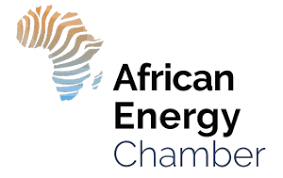- The African Energy Chamber commends Azule Energy for its sustainability efforts and operations in Angola as it supports the country’s E&P goals
In a bid to solidify its position as a key player in the global energy market, Angola has set its sights on ramping up oil and gas production to counter expected natural decline.
The country plans to increase oil output to 1.1 million barrels per day (bpd), maintaining this output until 2027. Meanwhile, Angola is also working to increase natural gas’ share in its energy mix to 25% by 2025, a move that will strengthen feedstock for the Angola LNG facility. With substantial investments in upstream projects, Azule Energy is poised to play a crucial role in helping the country achieve its ambitious energy goals.
Upstream Investments to Bolster Angolan Energy Security
Azule Energy represents one of the largest independent equity producers of oil and gas in Angola, with two billion barrels equivalent of net resources, stakes in 20 licenses – of which 11 are operated – and participation in the Angola LNG joint venture – the entity that operates the country’s inaugural LNG plant.
The company has set a target of increasing oil production to 250,000 bpd within the 2023-2026 period, accelerating gas monetization through the New Gas Consortium (NGC) – operated by Azule Energy – while developing 500 MW of renewable energy by 2025. This diversified project portfolio aligns closely with the government’s efforts to bolster energy security in the country.
Major upcoming projects also include the Agogo Integrated West Hub development, which features the development of a new production hub at Block 15/06. The project will produce hydrocarbons from the already-producing Agogo field and the newly developed Ndungu field, utilizing the existing Ngoma FPSO and the under-construction Agogo FPSO. Utilizing existing infrastructure in Block 15/06, the Agogo FPSO will have a capacity of 120,000 bpd and a gas injection capacity of 230 million cubic feet per day. Achieving FID in 2023, the Agogo Integrated West Hub project will come online in 2026.
Notwithstanding new developments, Azule Energy is committed to going even further with its support for production growth in Angola by maximizing output in existing fields. In line with Angola’s recently established Incremental Production Program – which seeks to incentivize investment in already-producing assets – the company is assessing expansion opportunities at mature fields.
Currently, Azule Energy’s portfolio of operated blocks include Cabinda Norte and Cabinda Centro (onshore), as well as Blocks 31, 15/06, 1/14, 18 and 28 (offshore). The company also has four FPSO vessels in operation, with a capacity of 1.75 million bpd each. Investments in incremental production at producing blocks would not only maximize field development but drive energy security across the nation.
In addition to oil, the company is also spearheading the development of the country’s first non-associated gas project through the NGC. The first phase of the project monetizes gas resources from the Quiluma and Maboqueiro fields – located in the shallow waters of the Northern Gas Complex – to produce four billion cubic meters of gas per year via two offshore platforms and an onshore gas processing plant.
The project is strategically designed to supply gas for the Angola LNG plant and is on track for first production in 2026. The NGC has the potential to utilize gas from Blocks 2, 3 and 15/14 for the Angola LNG plant, thereby supporting diversification and boosting gas monetization in Angola.
“Azule is fully committed to Angola. Angola is and remains at the core of our corporate strategy even as we explore other interesting opportunities outside. Our leadership is fully committed to investing and developing local content in Angola because we believe that is the right thing to do,” said Adalberto Fernandes, Government Affairs Director at Azule Energy.
Pioneering Sustainable Oil and Gas Solutions
Azule Energy has placed sustainability at the heart of its operations in Angola. The company’s Agogo FPSO, for example, is a pioneering infrastructure that incorporates carbon capture and storage (CCS) capabilities. The vessel is designed in a way that redefines sustainability in the industry and is largely-considered the first-of-its-kind.
Specifically, the FPSO features the world’s first post-combustion CO2 capture plants installed on an offshore facility, thereby significantly reducing the amount of CO2 emitted. The FPSO also integrates a number of electrification and automation technologies in line with the company’s vision to achieve net-zero in terms of Scope 1 emissions by 2030.
Meanwhile, the company is currently producing its first-ever sustainability report, which provides a comprehensive overview of Azule Energy’s performance regarding Environmental, Social and Governance (ESG) practices. The report will outline a plan to achieve net-zero and introduce stakeholders to measures and technologies being applied to drive sustainable oil and gas operations.
Additionally, Azule Energy is committed to strengthening local content in Angola. Through the company’s operations, Azule Energy supports job creation opportunities and has incorporated a skills development component to all projects. Block 15/06 alone is expected to become a hub for local industries, generating $5.6 billion and creating 1,400 jobs by 2044.
Meanwhile, the company’s onshore gas processing plant in Soyo – representing part of the NGC – features specific local content components. The NGC estimates that $1 billion of the project’s costs will be allocated to the procurement of local goods, services and materials. In tandem with renewable energy investments, these endeavors aim to set a new standard for sustainable oil and gas operations in Angola.







